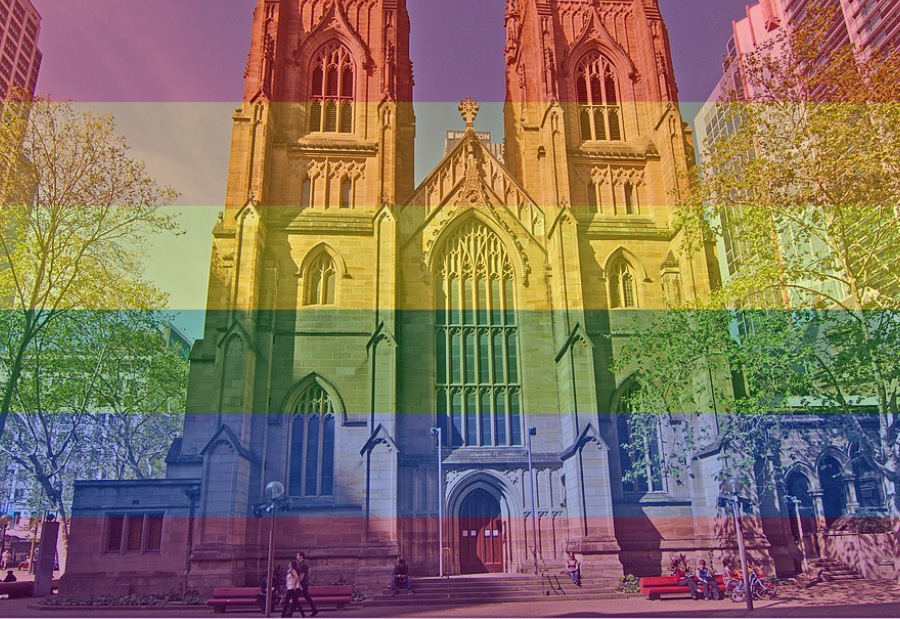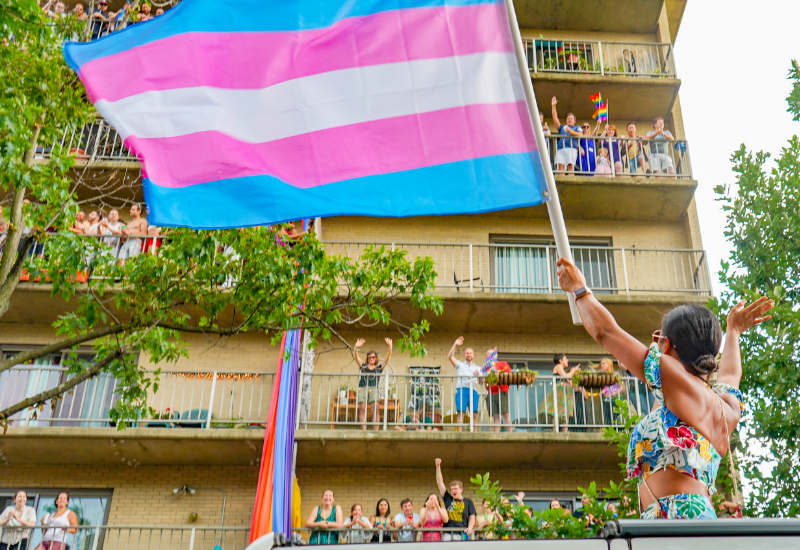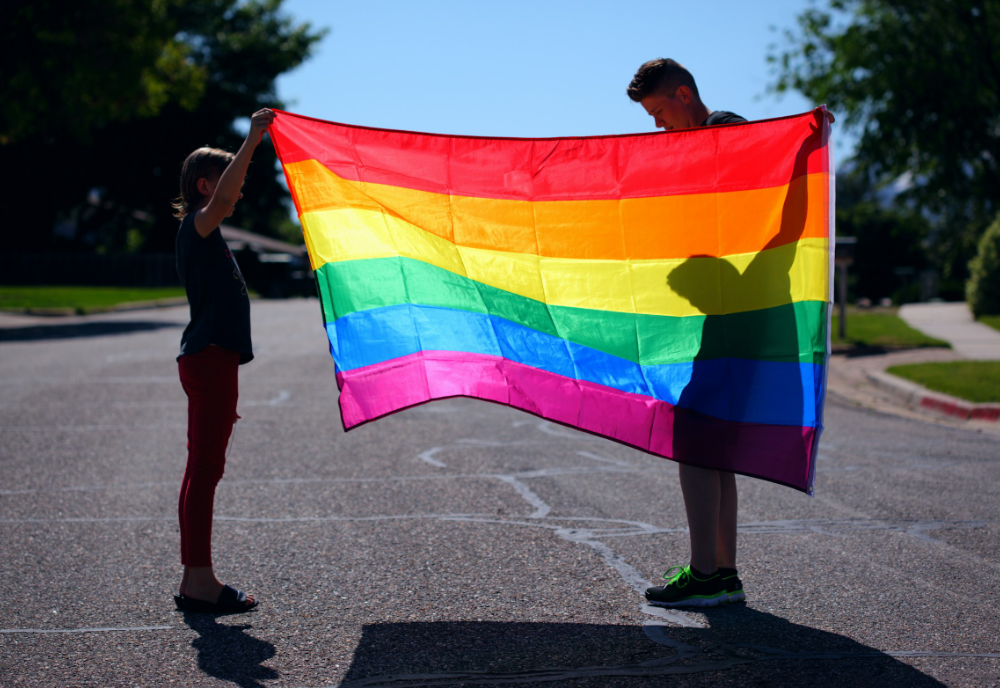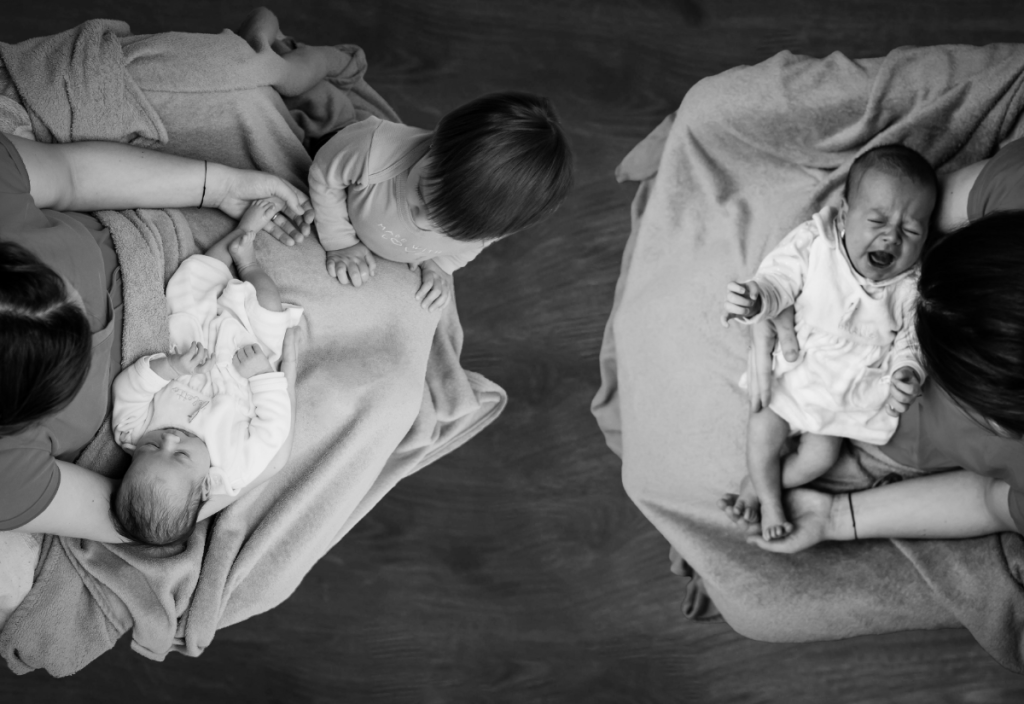Every three years, Anglicans from across Australia gather for our national synod, a five-day meeting to discuss important issues affecting the whole church.
COVID meant we hadn’t met since 2017. And, in the last five years, much has changed regarding the issue of same-sex marriage within Australian society.
Within the church, attitudes are changing, albeit at a slower pace than some of us wish for. Central to the changing landscape within the Anglican church is the 2020 ruling of the Appellate Tribunal, our church’s highest legal body.
In response to an initiative in Wangaratta Diocese to authorise a service of blessing for married same-sex couples, the Tribunal ruled that such a service was not unlawful, and this raised the ire of the conservatives.
The conservatives are led by the Sydney Diocese, who are vocal in their opposition to same-sex marriage. At our General Synod earlier this month, they brought a number of motions in the hope of ruling out forever the possibility of affirming same-sex marriage. They failed in their attempts, but are likely to keep trying.
In response, I moved a motion titled ‘The Affirmation of Same-sex Marriage’. It was seconded by Professor Peter Sherlock, a gay married Anglican. You can read the full motion on page 8 of the business paper for May 12 here.
Although we lost the vote – the vote was 145 against and 95 for – it is remarkable that 40 per cent of Anglicans voted in favour of this motion.
We will keep advocating for a broadening of the Anglican view on marriage. The resulting stalemate means the path ahead for Anglicans is uncertain. But, without a doubt, both the conservatives and progressives will be working hard to promote their respective positions.
Here is the speech that I gave on the motion.
Mr President, I speak as a straight person, an ally of the LGBTIQA+ community. This is a debate of monumental significance.
There has been no shortage of monumental debates in our history. It took the Church 400 years to clarify the Trinitarian nature of God. It took 1500 years to clarify that salvation is the free gift of God. It took a staggering 1950 years to assert the full equality of men and women.
Clearly, the fact that the Church has held a position for a long period of time is no guarantee that that position is correct. In every one of these debates, each side claimed that they were on the side of Scripture.
In 1864, an Anglican bishop, Reverend Dr John Henry Hopkins, said: “The Bible’s defence of slavery is very plain. St. Paul was inspired and knew the will of the Lord Jesus Christ, and was only intent on obeying it. And who are we, that in our modern wisdom presume to set aside the Word of God … and invent for ourselves a ‘higher law’?”
Does this unbridled confidence in one’s appeal to the authority of Scripture sound familiar?
Each one of these debates was eventually resolved by overriding theological principles and basic moral imperatives.
What then are the overriding theological principles? The main theological principle of opponents is that the pattern of creation is normative. Hence the constant appeals to Genesis 2 and Matthew 19.
In this view, heterosexual marriage is the only ordained pattern for marriage, bound to notions of biological differentiation and gender complementarity. There are three, in my view fatal, problems with this argument.
First, just as the affirmation of procreative marriage in Genesis 2 and Matthew 19 does not entail the wrongness of childless marriages, the affirmation of male-female marriage in Genesis 2 and Matthew 19, does not entail the wrongness of same-sex marriage. It is logical fallacy to say the goodness of heterosexual marriage entails the wrongness of same-sex marriage.
Secondly, there is a sweeping imbalance here in the neglect of Christological, ecclesial and eschatological patterns of core human identity.
- Christological: Christ, as a single male, is the full and complete imago dei, telling the human story in the way we have all failed to tell it. Hence the imago dei is refracted in our humanness, and not in any gendered or potential marital form thereof.
- Ecclesial: in Christ there is neither male nor female. This shows that core Christian identity cannot be tied to gender or sexuality.
- Eschatological: in the age to come, there is no marriage.
The opponents’ almost exclusive focus on Genesis entails for their position that complementarity is grounded in gender differentiation, rather than love of the other (“the two shall become one flesh”).
But when the patterns of creation, incarnation, the church and the age to come are held in appropriate balance, the necessity of gender complementarity is eroded entirely. Instead, complementarity is firmly located in love towards the other.
Secondly, with respect to the handful of Scripture texts on homosexuality, I believe that “The moral logic underpinning the negative portrayal of [homosexual practice] in Scripture does not directly address committed, loving, consecrated same-sex relationships today” (Brownson).
And, very importantly, Jesus makes no reference to homosexuality.
Thus affirming same-sex marriage in my view is not to dismiss Scripture but indeed the opposite – to take it with the utmost seriousness. We are thus not rejecting the word of God or its authority, but discerning and embracing the word of God.
Millions of Christians, and thousands of Biblical scholars have come to the same view. And almost everyone one of us sees Scriptures as central, authoritative, canonical. And, after much careful study and consideration, we have arrived at this conclusion.
The claim that we do not take Scripture seriously is as offensive as it is incorrect. In our view, the affirmation of same-sex marriage is entirely in accord with the Scriptures taken as a whole, and with the historic Christian creeds.
What then are the overriding moral imperatives? First, we must ask: what specifically is wrong about homosexual marriage? When two people of the same gender give their lives to one another in covenantal fidelity and love, what sin is being enacted? What harm is being done? What evil is being propagated?
In all the literature opposing same-sex marriage, I have yet to find any explanation of the specific sin being committed in same-sex intercourse. This is telling.
If we take other types of sexual practice, such as adultery, incest, bestiality and so forth, the articulation of the wrongness – and harmfulness – of the specific sexual activity is straightforward to articulate, morally coherent and contrary to creational, Christological, ecclesial and eschatological theological principles.
But, for homosexuality, its wrongness is simply asserted as a brute fact. The only ‘argument’ – I use the term reservedly – used is one of divine fiat. And that is that homosexuality is wrong because God, it is claimed, says it wrong.
However, there cannot be any ad hoc ethical injunctions in Christian theology, as they fail the agreed tests of reasonableness, rationality and robustness.
If same-sex sexual union is indeed wrong, there needs to be a thoughtful, compelling, coherent account of its wrongness.
Finally, the nature of desire. Jesus taught that, if one has lustful desires, one has committed the sin, even when it is not enacted. What determines the sinfulness is the desire. One could not commit an act of lust without the lustful desire. So Jesus binds together desire and its enactment.
Opponents of same-sex attraction in the Anglican Church of Australia agree with us that same-sex desires are not sinful eo ipso (‘in and of itself’). Same-sex attraction for the other, resulting in marital love, is like all other good love. It selflessly seeks the wellbeing of (agape) and union with (eros) the other, as Aquinas so argued.
It is directed toward the other and yearns for that which is good and true and beautiful for them. And, given its reciprocity, it yearns to be loved in equal measure, freely and completely, and to be united bodily with the other. Such love is Christ-like, and Christ’s love for us is, in fact, the measure and standard of all love.
So I put it thus: when one ponders seriously and deeply the nature of the love same-sex couples have for one another, and when one sets aside all those counter arguments which appeal to fallen human nature – given that such counter-arguments count equally against heterosexual marriage – the faithful enactment of such same-sex love, desiring the wellbeing and flourishing of each other, must necessarily be deemed to be good, wholesome and, indeed, Christ-like.
To put it simply, God revealed in Christ through the Spirit affirms, blesses and delights in same-sex marriage.
The window of opportunity is closing
This was the first motion to be put before the General Synod affirming same-sex marriage. I hope it won’t be the last.
Although I expected the motion to be lost on this occasion, I still wanted, for a number of reasons, to bring it to the floor for debate.
I wanted to honour all those who belong to LGBTIQA+ communities, their allies and families, who long to hear words of affirmation, acceptance and welcome. I wanted to do it because I had made a commitment to speak up on this issue, regardless of the cost, because the pain of this struggle, and the burden, must be shared.
I wanted to do it because, as a church representative, I fear the window of opportunity for dialogue about this issue might be closing.
The overriding reason was this: I am passionate about doing all that I can to help make the Anglican Church a community that is affirming, inclusive, comprehensive and open-hearted. Because in the Gospel of Christ we hear those words all of us long to hear: “You are beloved by God and will never be abandoned.”
If you wish to republish this original article, please attribute to Rationale. Click here to find out more about republishing under Creative Commons.
Photo by Maksym Kozlenko (alterations made, CC)










